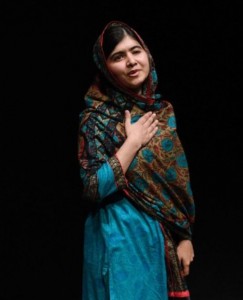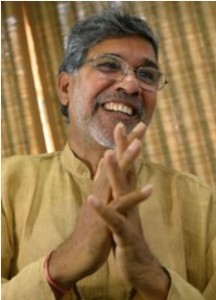Dear Commons Community,
Malala Yousafzai, a 17-year-old schoolgirl and outspoken activist, from Pakistan, and the Indian child rights campaigner Kailash Satyarthi, were announced as this year’s winners of the Noble Peace Prize. Ms. Yousafzai will share the $1.1 million award with Mr. Satyarthi, 60, a veteran, soft-spoken activist based in New Delhi who has rescued trafficked children from slavery. As reported in the New York Times:
“Announcing the prize in Oslo on Friday, the committee chairman, Thorbjorn Jagland, said it was important for “a Hindu and a Muslim, an Indian and a Pakistani, to join in a common struggle for education and against extremism” — a resonant message in a week in which the Pakistani and Indian armies have exchanged shellfire across a disputed stretch of border, killing 20 villagers. But it was also a message that highlighted how far Ms. Yousafzai has come from her original incarnation as the schoolgirl who defied the Taliban and lived to tell the tale…
“I was totally surprised when I was told, ‘Congratulations, you have won the Nobel Peace Prize, and you are sharing it with a great person who is also working for children’s rights,’ ” Ms. Yousafzai said at a news conference…
“If with my humble efforts the voice of tens of millions of children in the world who are living in servitude is being heard, congratulations to all,” Mr. Satyarthi said in a television interview on Friday.”
Tony




